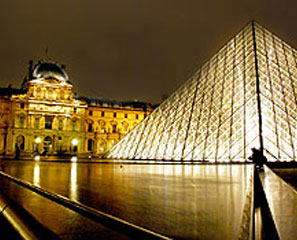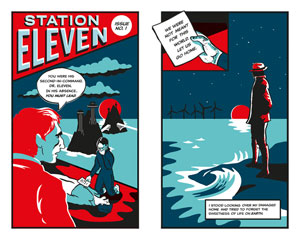yes, "projects" with an "s"
This assignment is worth up to 200-points total. It is the major assignment of the semester. You cannot pass the class if you do not complete this project. Start early; works smartly and steadily.
You will need to decide which path to take. Each choice has some unique characteristics and requirements, but all are, essentially, research projects with plenty of creativity thrown into the mix.
research in general
The exact kind of research you need to do will vary depending on the project you select, and there will be some added tips on specific research considerations on each of the project pages.
In general, research begins with a search for information on your topic and your particular focus. For the Sequal Project you might do a Google search for "living off the grid." You will find way too much (I just got over 79-million hits, though most of those probably have nothing to do with "living off the grid"). Narrow the focus to just your specific areas of interest (perhaps just what it would be like to live in a missle silo during an emergency, if that is what will be going on in your sequel). A museum project that will showcase 19th-century American board games will have focused research on the history of and various examples of those games (their make-up, common themes, etc.). The graphic fiction project is already fairly focused. What can you find on the internet? What can you find in books in libraries? In journals and databases? At this point, you aren't choosing the information you'll use; you are simply surveying the information that is available. Look at all sources. You will not be able to read everything that's been, but read as much as you can, to get an idea of the range of information that is available to you.
Although you are not allowed to use Wikipedia in your essay, you can read it for ideas and information at this point. Wikipedia is often a good place to start, just to get ideas. But then move on from there to more reliable, professional sources. There are plenty of such resources available to you on the Internet and in the college's books and databases. There are also public libraries. Although they tend not to have much academic research information, they might just have what you are looking for on the history of the graphic novel, for instance.
LAHC Library Research
As long as you're registered at LA Harbor College, you have access to a number of databases through the Harbor College library. Those databases have tons of articles on all subjects from many periodicals, including professional and scholarly journals. You can access the databases from the following link; from there, just follow the directions to log into the system:
Los Angeles Harbor College Databases
The most effective way to search these databases is to use the "keyword" option at first, to get the broadest search results.
For example: let's say I want to create a museum about old cars, from 1968 back to the beginning.
I would go to the databases main page and try one of the unspecialized databases, "All EBSCO Databases." This would take me to a page which asks which database I would like to use. I would click "Select All" and then click "Continue." This would take me to a page with search boxes. In the main search box, I would type in "antique cars" and leave everything else blank. The first search would produce over 10,000 results. Lots of these will be useless, of course, but some may be of help. There's an article on a classic car museum in Canton, Ohio, for example, and articles on classic car auctions in various places (that could help with acquisitions). To narrow your results, you can add search words to the other boxes as well. You will probably find many more articles than you need. That's okay--it just gives you lots of choices.
Don't forget books; books are good!
Depending on your topic, there may have been books written about your area of interest, as well. To find books on your subject, search the LAHC book catalog. Go to the LAHC Library page and click on the "Search Library Catalog" link. (There's also a link to click if you're off-campus.)
Please feel free to contact me or the librarians if you need help navigating the databases or catalog.
the projects: what they have in common
All three projects, in some way, relate to Station Eleven. All projects involve some research in addition to quite a bit of creativity.
All projects will be done in stages, with a Project Proposal needing approval before you can move on to the final project itself. Information on the Proposal (what the format is, what must be included) will be due well before the final project is due. See the Class Schedule for all due dates.
All projects will take time. This is not something to procrastinate about.
All projects willl have specific "things" that are due, but there will be some variety in the form those "things" might take; for example, if you do the Museum of Civilization project, you might produce the museum itself on paper, as a PowerPoint presentation, or as a website.
the projects: how they differ
The most obvious difference relates to topic. The first option will have you creating your own (virtual) museum. The second option will have you write a portion of a sequal to Station Eleven (I am certainly not going to give you any spoilers here, but the book does lend itself to a sequal. The third option will have you produce Station Eleven, the actual comic book that is referred to but never fully shown in the novel.
two three roads diverged in a wood
There are three paths to choose from; select wisely...
I recommend looking at each before making a final decision :)


